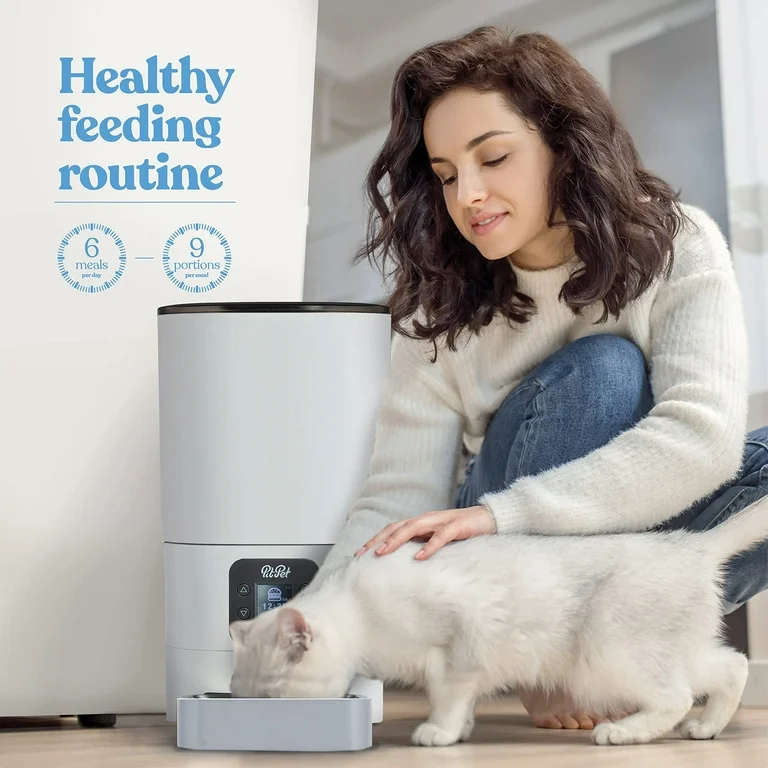As a cat owner, you might have seen the funny and odd behavior of your cat embracing your arm while biting it at the same time. This mixed gesture of love and aggression will both of you puzzled.

Well, there’s no need to get alarmed; this is very normal behavior for cats. Here we will discuss why your cat does this, what it means, and how to manage it if needed.
Read Next: How to Choose the Right Scratching Post for Your Cat
Understanding Your Cat’s Behavior
Cats are complex animals, and their behaviors can be pretty puzzling at times. Let’s decode the arm-hug-and-bite action by exploring some of the possible reasons for this behavior.
1. Playfulness
Cats are playthings in nature, especially the younger ones. They might consider your arm a toy, wrap their paws around it, and lightly bite as part of their playful antics. It’s a behavior they’d show to their littermates when they wrestle, bite, and hug one another as a means of learning hunting skills and social boundaries.
If your cat is in playful mode, then you are sure to see their pupils dilate, tail wag, and bursts of energy. Their bites usually are not hard but soft, kind of a gentle nibble, but overstimulation could make their bites hard.
2. Overstimulation
Cats have a tolerance for physical contact. A cuddle session may escalate into a bite if your cat feels overstimulated. Petting-induced aggression is a common occurrence when excessive stroking overwhelms your cat, causing them to quickly nip or bite at you.
Watch for the signs of overstimulation, such as:
- Ears laid back
- Tail twitching
- Skin rippling
- Sudden vocalization
If you notice any of these signs, then that is a sign that you should give your cat some space.
3. Love Bites
Cats sometimes give what are often called “love bites.” While this is not exactly loving, in your opinion, this behavior is your cat’s expression of love for you. Love bites tend to be mild and not serious. Your cat might hug your arm as a method of attachment and then deliver the bite as a friendly way of showing affection to you.
4. Instinctual Hunting
Cats are natural hunters. Even indoor cats retain their instinct to pounce, grab, and bite. When your cat hugs your arm and bites, they might be practicing their hunting skills. Your moving arm could trigger their predatory instincts, making them treat it as “prey.”
5. Marking Territory
They also have scent glands in the paws and mouth of cats. Your cat is probably marking you as “theirs” by embracing your arm and nipping you because this is a way they will attach to you and make you part of their territory.
6. Stress or Anxiety
Sometimes, such behavior is a response to stress or anxiety. If your cat feels apprehensive about something, the act of hugging and biting could be a way through which your cat self-sooths or redirects their distress. Maybe the environment changes, brings in new pets, or lacks stimulation.
How to React to the Behavior
Most of the time, it is harmless, but it can be uncomfortable or even painful if the bites are strong. Here are some ways on how to deal and react to your cat’s arm-hugging and biting:
Read Next: Why Do People Choose Cats as Pets?
1. Identify the Triggers
Pay attention to what triggers this behavior. Does it happen during playtime? After prolonged petting? Or is your cat overstimulated? If you know what triggers this behavior, then you can act accordingly.
2. Redirect Their Energy
If your cat is playful, redirect their energy to appropriate toys. Interactive toys, like feather wands or laser pointers, can provide a healthy outlet for their hunting instincts and keep your arms safe.
3. Set Boundaries
Teach your cat not to bite by gently laying down boundaries. When your cat starts to bite you, calmly withdraw your arm and stop playing with your cat. Never yell or punish your cat because this creates a fear response and can intensify the behavior.
4. Enrichment
Your cat needs mental and physical stimulation. Puzzle feeders, climbing trees, and play can help reduce boredom and undesired behaviors.
5. Give Them Space
If your cat seems to get overstimulated, stop petting them and let them come to you when they’re ready for more attention.
6. Positive Reinforcement
Reward your cat for gentle, non-biting behavior with treats, praise, or extra playtime. This positive reinforcement may help them continue the good behavior.
When to Seek Help
While arm-hugging and biting are in most cases considered normal, the following are when one should take his pet for a veterinarian or an animal behaviorist consultation,
- Constant Aggression: When your cat’s bite is always aggressive; then he has to be investigated in terms of medical factors, as well as other stressors causing his aggression.
- Sudden changes: Behavior presents suddenly and is entirely not characteristic for your cat.
- Excessive Stress or Anxiety: If your cat appears too anxious or stressed, it may help to have the professional find out what is happening and provide a solution.
Conclusion
Such weird behaviors as cats hugging your arm and biting might have a different meaning. It can range from playful to affectionate, or even an expression of their natural instincts. That way, you would understand the context and triggers and be able to react in a way that would enhance your bond with your furry friend.
Remember that each cat is unique. Observe their body language and behavior to learn what’s important to your cat and what it wants. Be patient and loving, and you will ensure a harmonious relationship with your feline companion.





